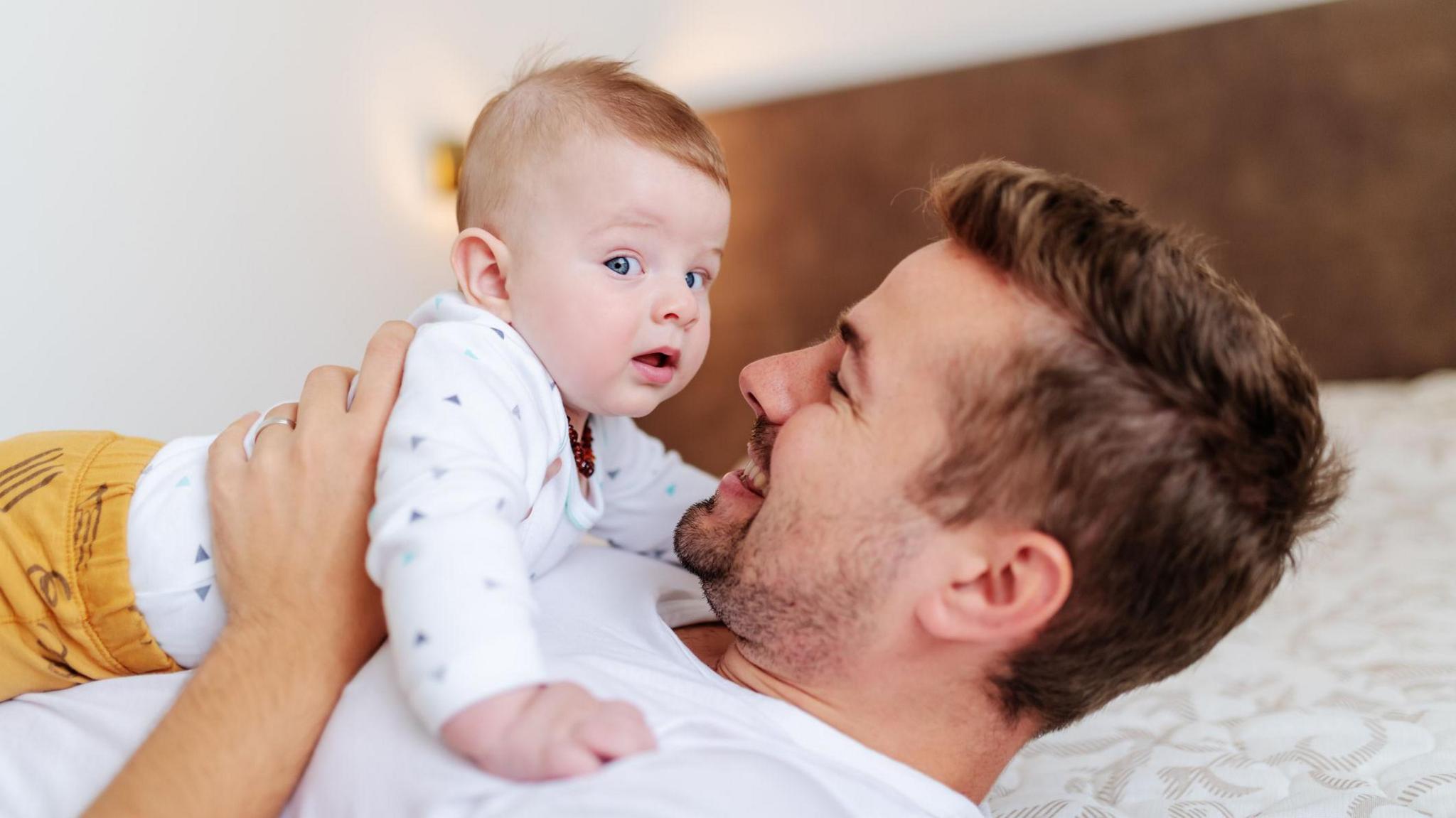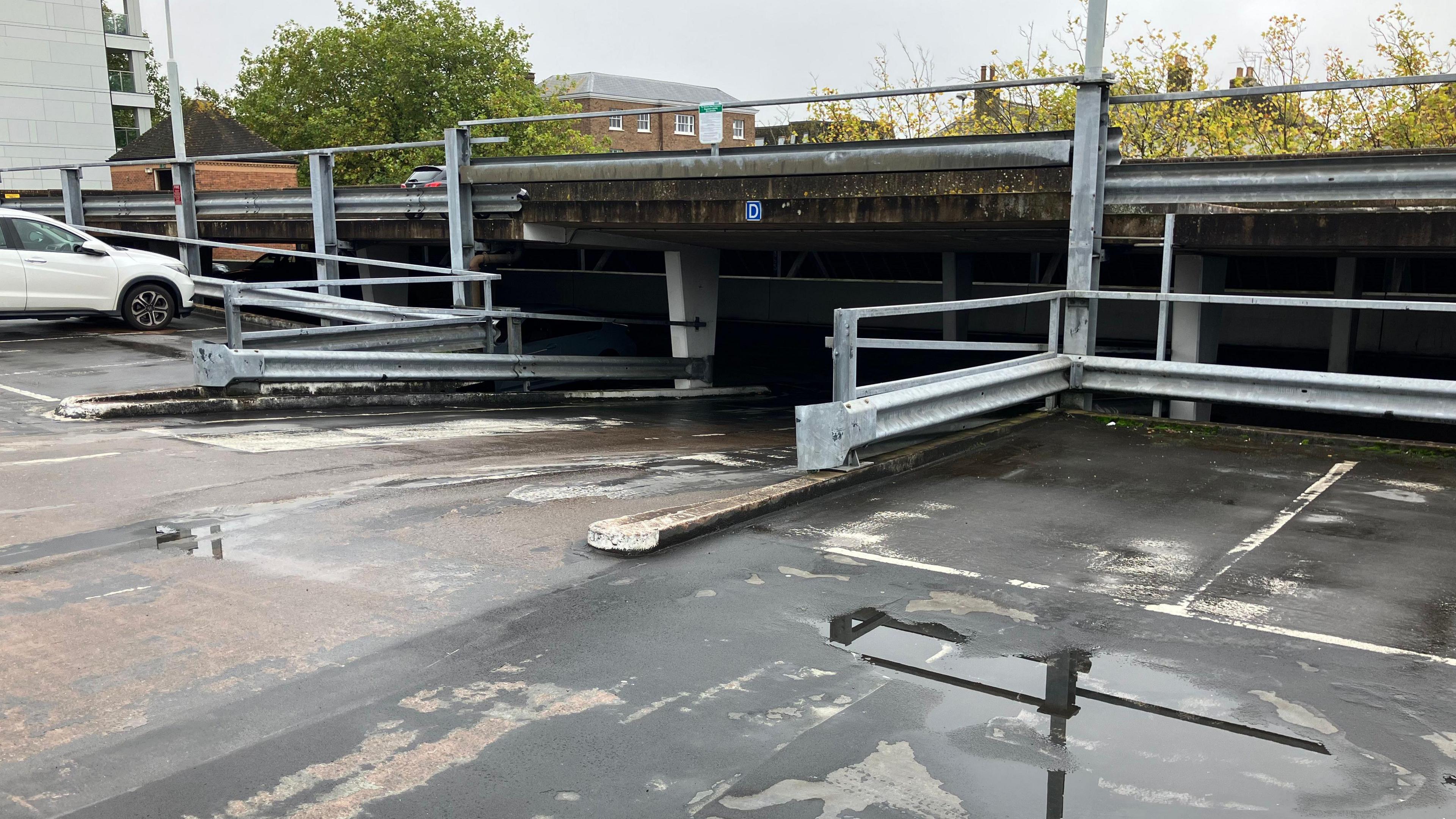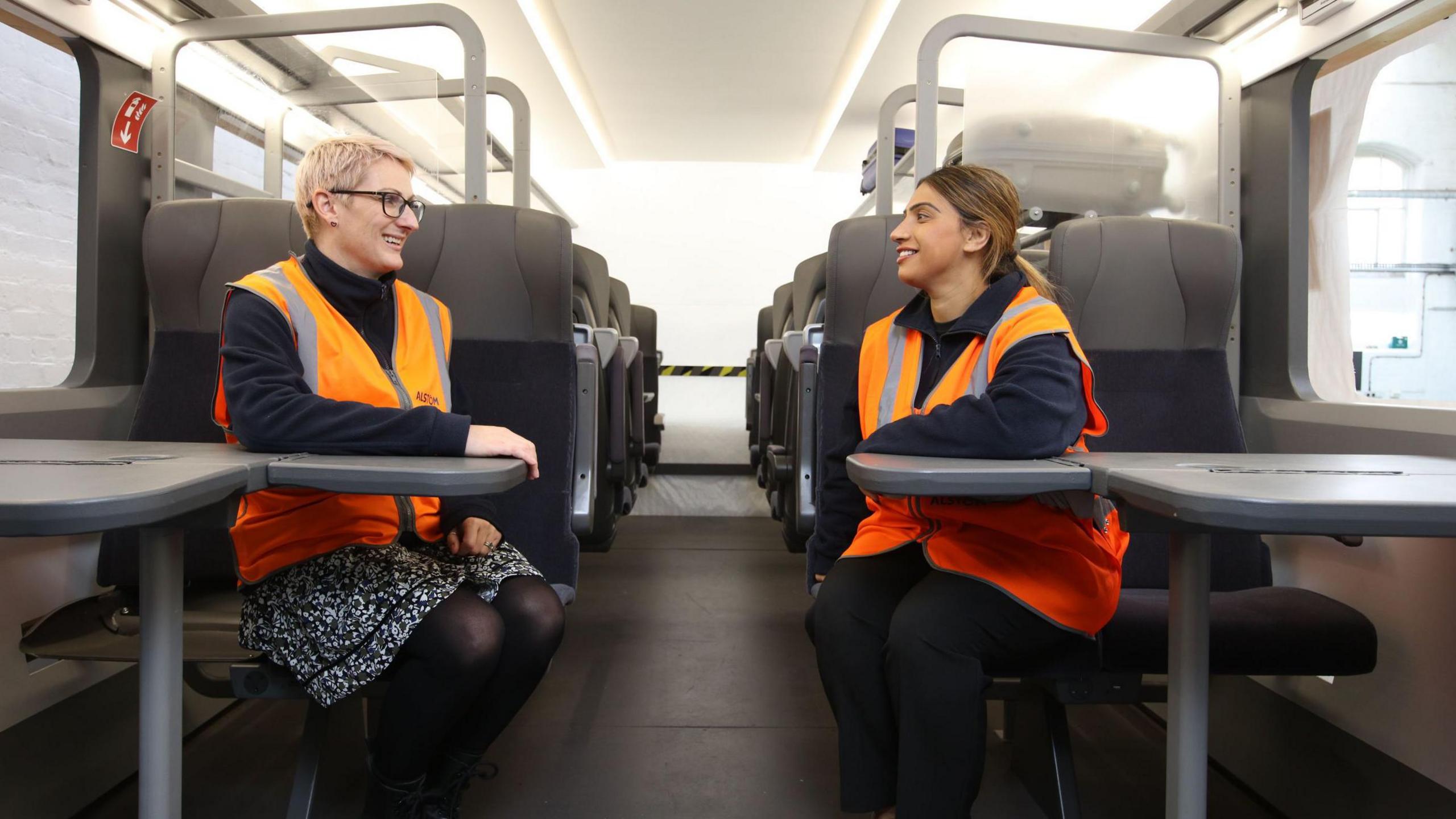A dad said taking shared parental leave came with “stigma attached to it”, as new research suggests the policy has “failed”.
Ricky Skinner from Bristol took parental leave when his son was three months old and said there were “some raised eyebrows” about his decision.
This comes as the University of Bath published research that found shared parental leave has not affected the number of fathers taking leave, nor the length of leave they choose to take.
“There were a few comments that were a bit funny,” Mr Skinner said. “People would have less of an issue with it, if more people were doing it.”
Shared parental leave was introduced in 2015, to let parents share the load of looking after their children, giving fathers a greater role at home and encouraging mothers to get back to work sooner.
Mr Skinner said taking shared parental leave was “a good experience, in general”.
“We both decided it was a good thing for the bond between me and my child as a father,” he said.
“In general, it was very fun, difficult at times, but the same any other parent would have.”
He said, however, that there was “a bit of a stigma attached” to his decision.
“Babies are seen as a mother’s thing,” he said. “There were comments saying my wife was ‘generous’ with her leave, as if it was just her child.”
Mr Skinner added another thing he struggled with was a lack of other fathers to speak to.
“Going into classes where it’s mainly mothers was challenging at times.
“I felt uncomfortable, like there was a barrier there and I got the sense that conversation topics changed to surface pleasantries – people were censoring themselves in my presence.”
Mr Skinner said another reason for the stigma was the financial pressure some families face.
“The bread winner of the house might be the dad in a lot of cases,” he said.
“The appetite is there for dads to do it, modern dads want to spend as much time as they can with their children at a young age. But finances rule everything.”
A study at the University of Bath used data from 40,000 households across the UK, and found paternal leave uptake has not increased, and the time off being taken are not longer.
Eleonora Fichera, who was involved in the research, said: “If you look at the financial incentive, it’s quite low. A fraction of the minimum wage.
“It’s not like in other countries where it’s in addition to the maternal leave. It creates a bargaining issue within the household.”
Ben Arrigoni, coordinator at Somerset-based charity Dad Matters, which supports the needs of fathers, said the traditional gender roles were another reason for fathers not taking parental leave.
“Traditional expectations often paint care-giving as a “maternal” responsibility, making it harder for fathers to feel comfortable taking parental leave,” Mr Arrigoni said.
“They might feel pressure to prioritise their career over spending time at home with their child.”
He agreed that there was less support for fathers: “Many fathers feel they don’t have access to parenting groups or communities that can provide guidance and support around parental leave, especially compared to the networks available to mothers.”
Ms Fichera added that she hopes that by spreading the results from their work, “action is taken”.
“We want to have a more equal share of the care of children but also this could also be one of many ways in which we can close the gender gap by incentivising mothers to go back to work,” she said.
Follow BBC Somerset on Facebook, external and X, external. Send your story ideas to us on email or via WhatsApp on 0800 313 4630.










